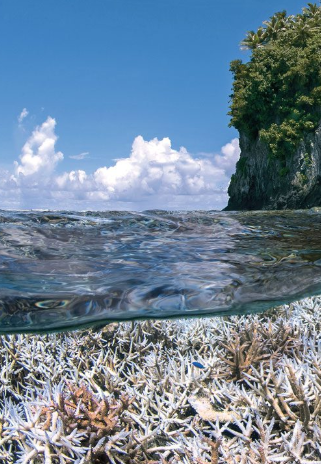Acid affects coral bones
 Ocean acidification is giving corals ‘osteoporosis’.
Ocean acidification is giving corals ‘osteoporosis’.
US researchers have found that ocean acidification - caused by land runoff and growing amounts of atmospheric CO2 being absorbed into the oceans - is reducing the density of coral skeletons in the iconic Great Barrier Reef (GBR).
The team says that, similar to how osteoporosis weakens bones in humans, the acidity in the seawater eats away at the coral's ability to build strong supported foundations for the Reef.
Corals need density to keep from breaking apart, and the researchers say there has been a reduction to the density of Porites corals in the GBR by 13 per cent since around 1950.
“This is the first unambiguous detection and attribution of ocean acidification’s impact on coral growth,” said lead author Weifu Guo, a geologist at Woods Hole Oceanographic Institution.
“Our study presents strong evidence that 20th century ocean acidification, exacerbated by reef biogeochemical processes, had measurable effects on the growth of a keystone reef-building coral species across the Great Barrier Reef and in the South China Sea.
“These effects will likely accelerate as ocean acidification progresses over the next several decades.”








 Print
Print